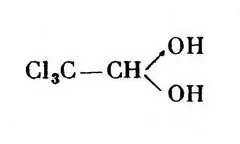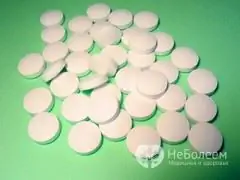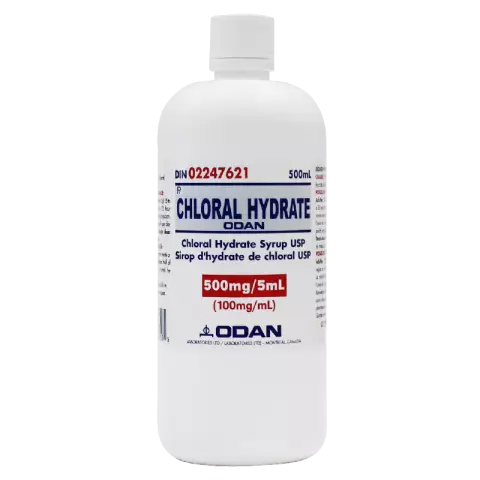- Author Rachel Wainwright wainwright@abchealthonline.com.
- Public 2023-12-15 07:39.
- Last modified 2025-11-02 20:14.
Chloral hydrate
Instructions for use:
- 1. Pharmacological action
- 2. Indications for use
- 3. Instructions for use
- 4. Side effects
- 5. Contraindications
- 6. Overdose
- 7. Special instructions
- 8. Release form and storage conditions
Chloral hydrate - belongs to a group of drugs that affect the central nervous system.
Pharmacological action of Chloral hydrate

Chloral hydrate has hypnotic, analgesic, anticonvulsant and sedative effects. In large doses, it has narcotic properties. Chloral hydrate has a complex effect on the central nervous system. With the appointment of small doses, the drug weakens the inhibitory processes, and in large doses it reduces the excitation processes. It is dangerous to use too high doses of Chloral hydrate, which are close to toxic. they strongly inhibit the process of excitability of nerve cells.
Chloral hydrate has a pronounced irritating effect on the mucous membranes of the stomach and intestines, therefore it should be prescribed only in diluted form together with coating agents.
Chloral hydrate is absorbed very quickly. Sleep close to physiological sleep occurs after about 15 minutes and lasts for eight hours.
Indications for the use of Chloral hydrate
According to the instructions, Chloralhydrate is used to relieve mental agitation, convulsive seizures in children, with spasmophilia, tetanus, rabies, eclampsia. Chloral hydrate can be used to conduct certain types of examinations for children and restless adults that require a sufficiently long immobility (MRI, CT).
Instructions for use
For adults, Chloralhydrate is administered orally or in the form of enemas at a dose of 0.2-1.0 g per dose. The drug is taken only in conjunction with coating agents and in large dilution.
For children, the dosage of Chloral hydrate is prescribed depending on age and ranges from 0.05 to 0.75 g.
The highest single dose of Chloral hydrate for adults is two grams, and the daily dose is six grams.
Side effects
Chloral hydrate intake may be accompanied by a decrease in blood pressure and vomiting.
Long-term use of this drug often leads to the development of drug dependence (chloralomania).
Contraindications
According to the instructions, Chloralhydrate cannot be used to treat patients suffering from severe diseases of the cardiovascular system, kidneys and liver. Other contraindications to the appointment of Chloralhydrate are:
• Alcohol or drug addiction at present or in history;
• Esophagitis, gastritis, peptic ulcer (if the drug is administered orally);
• Proctitis, colitis (when the drug is prescribed in an enema);
• Intermittent porphyria.

Chloral hydrate should be used with great caution in pregnant women. With prolonged use in newborns, withdrawal symptoms may occur.
The drug penetrates well into breast milk and causes sedation in infants. Therefore, if it is necessary to use Chloral hydrate, breastfeeding should be discontinued.
Overdose
There is no specific antidote. Treatment of poisoning is symptomatic: gastric lavage, maintenance of breathing and blood circulation at a normal level, forced diuresis. In severe poisoning, hemodialysis is indicated.
special instructions
Taking Chloral hydrate together with other drugs that have a depressing effect on the central nervous system and alcoholic beverages is unacceptable.
Chloral hydrate release form and storage conditions
Chloral hydrate is available in the form of tablets containing 0.5, 0.75 and 1.5 g of the active substance. The package contains 10 tablets.
The drug belongs to list B. It should be stored at room temperature in a dry and dark place out of the reach of children. The shelf life is 8 years.
Information about the drug is generalized, provided for informational purposes only and does not replace the official instructions. Self-medication is hazardous to health!






